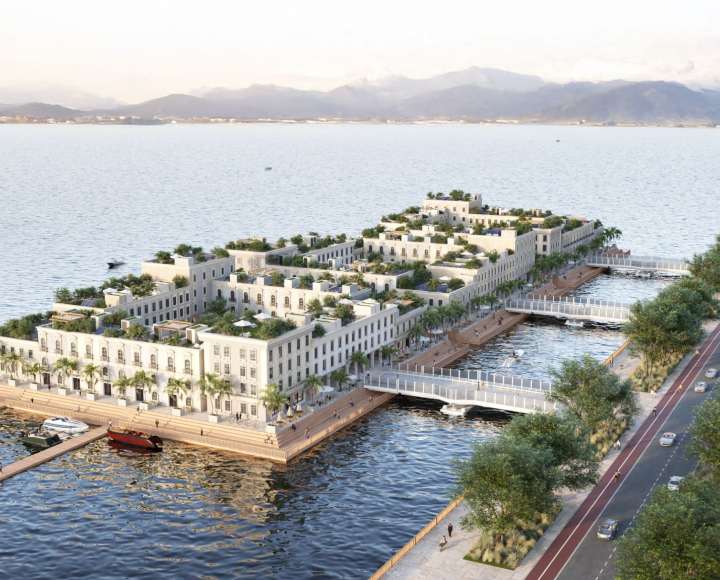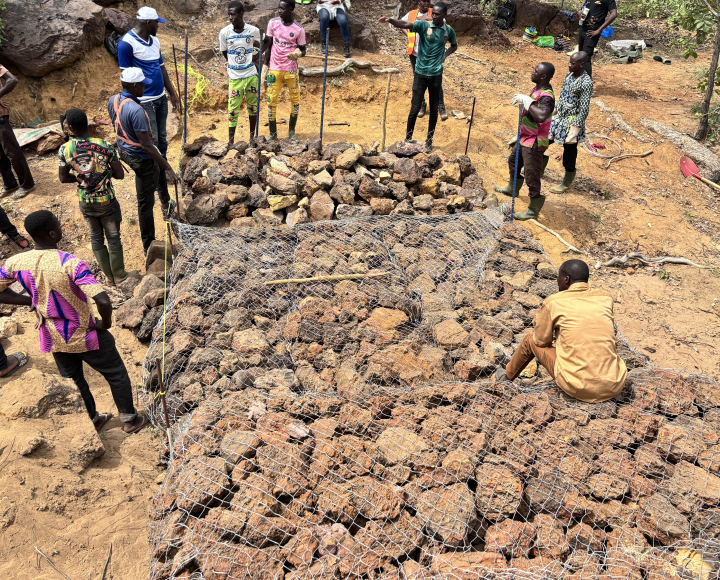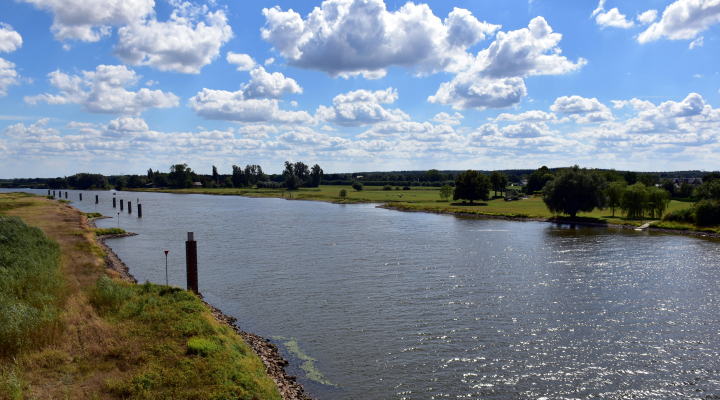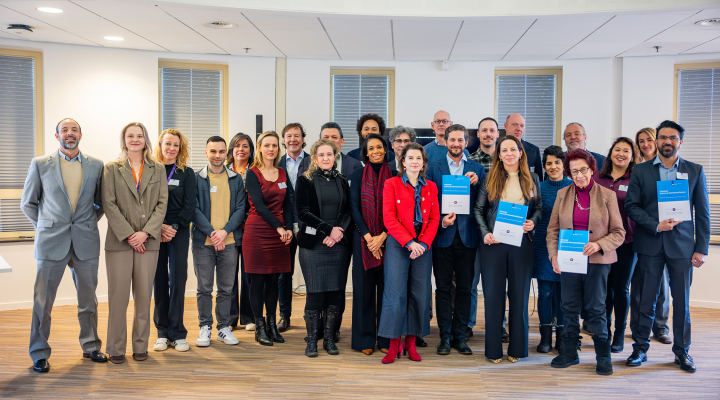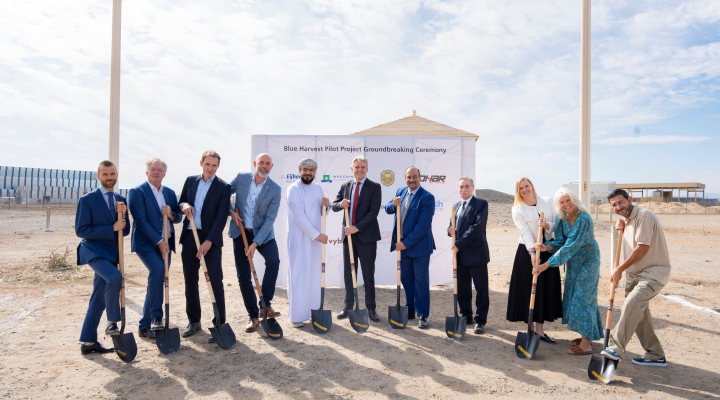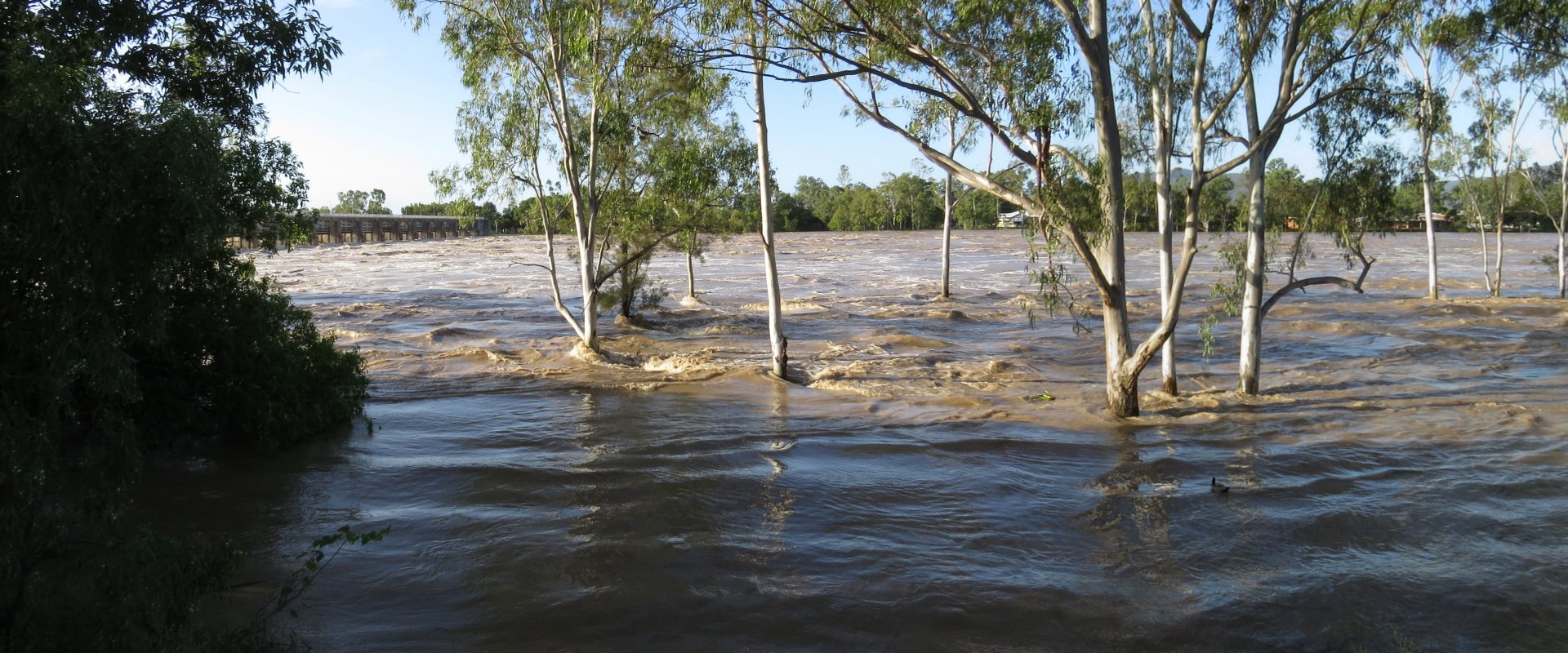
IPCC report - Decisions today determine the future
We can still take action now in order to live safely and sustainably in deltas and coastal areas in the future. That is the hopeful message of the new IPCC report (WG-II), but the window of opportunity is narrowing. This message is also supported by Dutch Research institute Deltares.
Focus on adaptation
The independent institute for applied research in the field of water, Deltares, has summarised the ten most important outcomes of the new IPCC report in light of their mission: Enabling Delta Life. The urgent call of the report is not limited to the need to reduce carbon emissions; it also focuses on accelerating adaptation to the consequences of climate change. Not all effects of climate change can be prevented and so sound preparation is enormously important.
Marjolijn Haasnoot, senior researcher Climate and Water at Deltares: “This report shows that there are significant risks associated with climate change, and it discusses our adaptation options. An acceleration of adaptation and more drastic measures are needed to keep up with climate change. By taking the long-term adaptation challenge into account, we can make sustainable and timely decisions and prioritize long-term investments.”
More than 270 scientists worldwide contributed to this new report (WG-II). They included Dutch lead authors from Deltares, Wageningen University and Research Centre and the University of Twente.
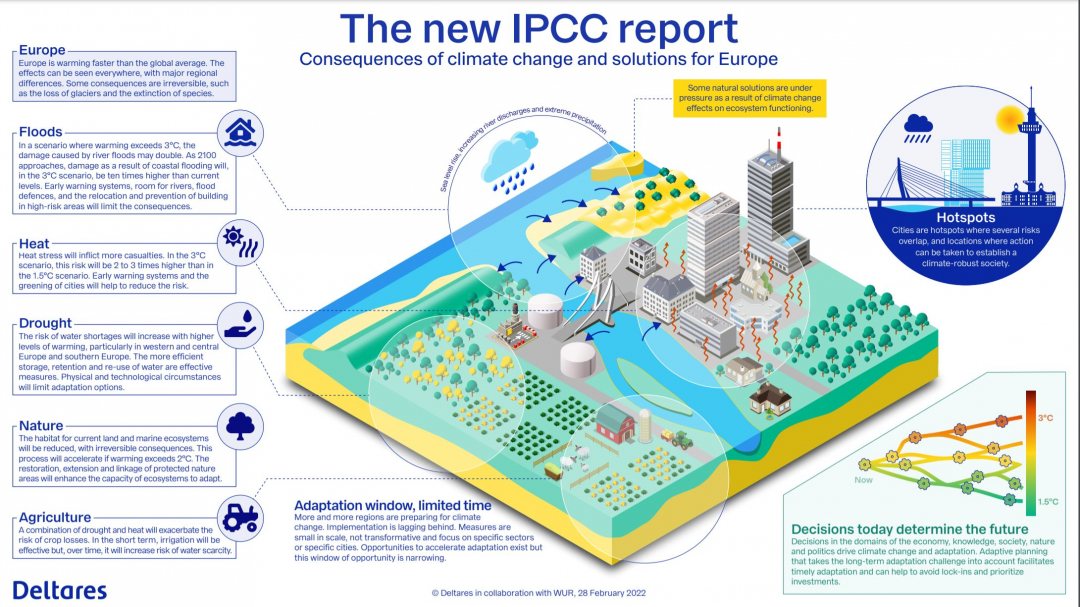
Ten lessons
Based on the report, Deltares draws ten lessons for floods, drought, heat, nature and water management. Pointing out that cities are hotspots where several risks overlap, and that these are the locations where action can be taken to establish a climate-robust society.
The ten most important outcomes:
- Climate change is already affecting many locations, and those effects will increase with all subsequent warming
- Tackling the consequences of climate change depends on the interrelated interactions between climate, nature and people
- The vulnerability of ecosystems and people to climate change varies between regions but the most vulnerable are most affected
- Natural ecosystems are under increasing pressure, and so their contribution to mitigation and adaptation efforts is being undermined
- Urban areas are hotspots: the consequences of climate change converge here. However, at the same time, there are opportunities for adaptation and mitigation.
- Sea level rise will involve major risks and adaptation challenges for coastal areas
- Cascading, compound and transboundary effects have a major impact on ecological and humanitarian crises
- The possibilities for adaptation are unevenly distributed and this gap is widening
- Closing the adaptation gap depends on timely action and flexible strategies for the long term
- Sustainable development and the avoidance of maladaptation require integrated approaches to adaptation, mitigation and addressing societal and environmental challenges.
One of the main take-aways Deltares is also highlighting in their infographic is the narrowing window of opportunity to enable climate resilient development. 'The longer we wait now, the less is possible in the future.'




